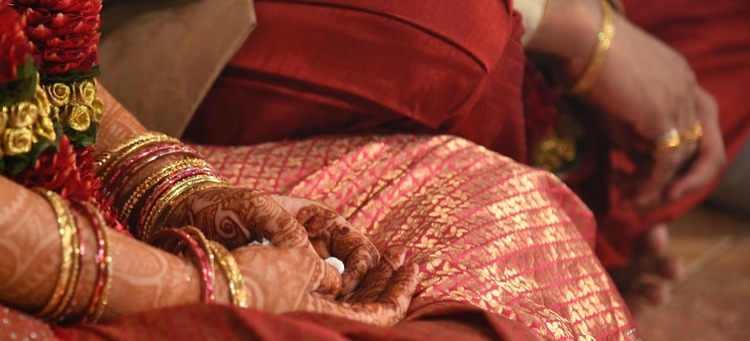Happily married? Your genes might have played a role, say scientists

Happily married? Thank your genes, say scientists who have identified a genetic variation in the 'love hormone' oxytocin that influences long-term happiness in a marriage. Published in the journal PLOS ONE, the study examined the role of a genetic variation that affects oxytocin, a hormone that plays a role in social bonding.
Lead author Joan Monin, associate professor at the Yale School of Public Health in the US, and her team studied 178 married couples ranging in age from 37 to 90 years old. Each participant completed a survey about their feelings of marital security and satisfaction, and also provided a saliva sample for genotyping.
The research team found that when at least one partner had a genetic variation known as the GG genotype within the oxytocin gene receptor, the couple reported significantly greater marital satisfaction and feelings of security within their marriage. Those couples had greater satisfaction compared with other couples who had different genotypes.
While the oxytocin receptor variant, OXTR rs53576, has been previously studied and linked to personality traits such as emotional stability, empathy, and sociability, the new study is believed to be the first to examine its role in marital satisfaction. "This study shows that how we feel in our close relationships is influenced by more than just our shared experiences with our partners over time," said Monin.
"In marriage, people are also influenced by their own and their partner's genetic predispositions," she said. The researchers also found that people with the GG genotype reported less anxious attachment in their marriage, which also benefitted their relationship.
Anxious attachment is a style of relationship insecurity that develops from past experiences with close family members and partners over the life course and is associated with diminished self-worth, high rejection sensitivity, and approval-seeking behaviour said Monin. The researchers said that an individual's GG genotype and their partner's GG genotype together account for about 4 per cent of the variance of marital satisfaction.
Although this percentage is small, it is a significant influence considering other genetic and environmental factors to which couples are exposed. The findings may lead to future studies to examine how couples' genotypes interact to influence relationship outcomes over time.
Another important future direction for the study will be to examine how the OXTR rs53576 variant interacts with specific negative and positive relationship experiences to influence relationship quality over time in a large representative sample of married couples, said Monin.
(With inputs from agencies.)
- READ MORE ON:
- Chemical element
- Climate change
- African Americans
- Survey methodology
- Research participant
- Focus group
- NBA All-Star Weekend
- Channel partner
- Suspicious Partner
- Business partner
- Partners Group
- Sexual partner
- Starr Partners
- First Nations
- First grade
- First aid
- The A-Team
- Football team
- Team Leader
- Joan Monin
ALSO READ
Palestinians want April vote on UN membership despite US saying peace with Israel must come first
Soccer-US players Morgan, Horan saddened by team mate's social media posts
Messi out for Inter Miami's CONCACAF Champions Cup quarterfinal first leg against Monterrey
Pakistan Hockey Federation wants Oltmans to coach national team
Scrut Automation raises $10 Million in growth capital from Lightspeed, MassMutual Ventures and Endiya Partners










